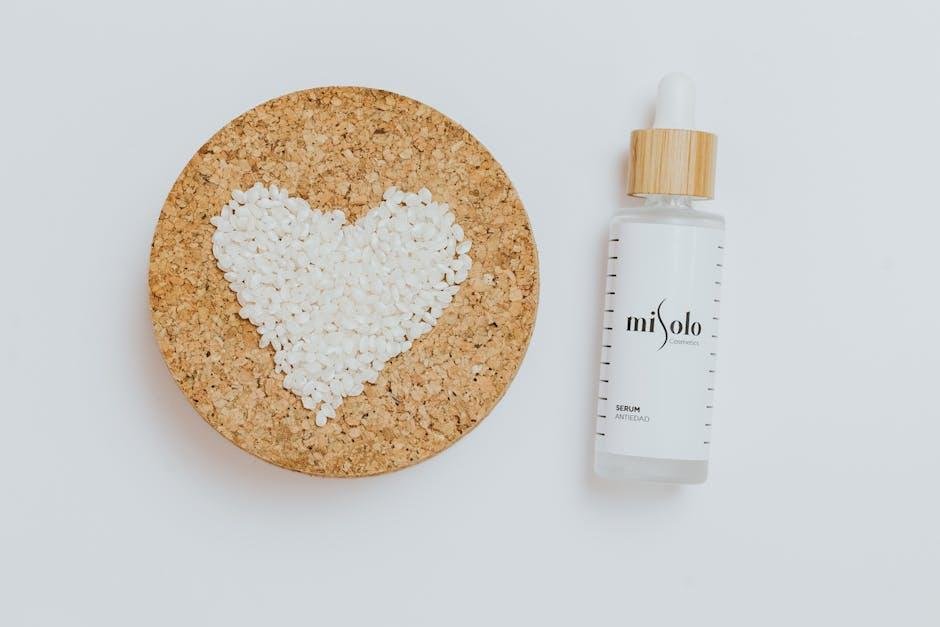In the intricate dance of life, the heart plays the lead role—steadily pulsing, tirelessly working, and quietly sustaining our every breath. Yet, amidst the rush of modern living, it’s easy to overlook the subtle ways our daily choices shape this vital organ’s health. Embracing the best lifestyle habits for a strong heart isn’t just about preventing illness; it’s about cultivating a foundation of vitality that supports a fuller, richer life. In this article, we explore practical strategies and mindful habits that can help your heart beat strong today and for years to come.
Table of Contents
- Understanding the Foundation of Heart Health Through Nutrition
- Incorporating Heart-Friendly Physical Activities Into Your Daily Routine
- The Role of Stress Management in Cardiovascular Wellness
- Prioritizing Quality Sleep for a Resilient Heart
- Essential Habits for Monitoring and Maintaining Blood Pressure
- Building Long-Term Heart Health with Consistent Medical Checkups
- Q&A
- Closing Remarks

Understanding the Foundation of Heart Health Through Nutrition
To nurture a resilient heart, the nutrients you choose daily play a pivotal role. Incorporating heart-friendly foods like omega-3 rich fish, leafy greens, and whole grains fortifies your cardiovascular system by regulating cholesterol and reducing inflammation. Additionally, minimizing intake of processed sugars and saturated fats helps maintain optimal blood pressure and prevents arterial plaque buildup. Small, consistent dietary choices build a foundation for robust heart muscles and enhanced vascular health.
Equally important is the balance of micronutrients and antioxidants that fight oxidative stress, a key contributor to heart disease. Foods high in vitamins C and E, along with polyphenols found in berries and nuts, support your heart at the cellular level. Here’s a snapshot of essential nutrients and their heart benefits:
| Nutrient | Primary Source | Cardiovascular Benefit |
|---|---|---|
| Omega-3 Fatty Acids | Salmon, Flaxseeds | Reduces inflammation and triglycerides |
| Fiber | Oats, Beans | Helps lower LDL cholesterol |
| Potassium | Bananas, Sweet Potatoes | Regulates blood pressure |
| Antioxidants | Blueberries, Dark Chocolate | Protects arteries from oxidative damage |
Incorporating Heart-Friendly Physical Activities Into Your Daily Routine
Integrating heart-healthy exercises into your everyday life can be both enjoyable and effortless. Instead of reserving workouts for the gym alone, consider simple activities like a brisk walk during lunch breaks or cycling to nearby destinations. These small bursts of movement not only elevate your heart rate but also boost your mood and energy levels. For those looking to add variety, activities such as dancing, swimming, or even gardening can serve as fun and effective cardio workouts that keep your heart strong without feeling like a chore.
To keep your routine balanced and impactful, focus on incorporating exercises that emphasize both endurance and strength. Aim for at least 150 minutes of moderate aerobic activity weekly, complemented by muscle-strengthening sessions twice a week. Here’s a quick guide to help you diversify your heart-friendly activities:
- Walking & Jogging: Easy to start, minimal equipment needed
- Swimming: Low impact, full body workout
- Cycling: Enhances leg strength and cardiovascular health
- Yoga & Stretching: Improves flexibility and reduces stress
- Group Sports: Encourages social interaction and motivation
| Activity | Duration | Heart Benefit |
|---|---|---|
| Brisk Walking | 30 min/day | Improves circulation |
| Swimming | 45 min/session | Boosts endurance |
| Yoga | 60 min/week | Reduces stress |
| Cycling | 30 min/day | Enhances lung capacity |
The Role of Stress Management in Cardiovascular Wellness
Chronic stress acts like an unseen force, quietly undermining heart health by triggering inflammation, raising blood pressure, and disrupting sleep patterns. When stress persists, the body remains in a heightened state of alert, releasing stress hormones like cortisol and adrenaline that can damage the cardiovascular system over time. Learning to recognize stressors and adopting effective coping mechanisms can break this cycle, paving the way for better heart function and overall wellness.
Implementing simple stress-reduction techniques can catalyze profound benefits for your cardiovascular system. Consider integrating practices such as:
- Mindful meditation to cultivate calmness and clarity.
- Regular physical activity which acts as a natural mood stabilizer.
- Deep breathing exercises to instantly lower blood pressure.
- Social connections that provide emotional support and resilience.
| Stress Management Technique | Cardiovascular Benefit |
|---|---|
| Meditation | Reduces heart rate and blood pressure |
| Exercise | Improves circulation and lowers cholesterol |
| Deep Breathing | Relaxes blood vessels |
| Social Support | Enhances emotional well-being |
Prioritizing Quality Sleep for a Resilient Heart
Quality sleep acts as a vital reset button for your cardiovascular system. During deep sleep, your heart rate slows, blood pressure drops, and your body’s repair mechanisms kick into high gear. Consistently missing out on restorative sleep can lead to increased inflammation, higher stress hormone levels, and elevated risks of hypertension and heart disease. To enhance your nightly rest, consider establishing a calming bedtime routine that includes dimming the lights, limiting screen exposure, and avoiding heavy meals or caffeine late in the day.
Simple strategies for better sleep include:
- Keeping a consistent sleep schedule, even on weekends
- Creating a cool, dark, and quiet sleeping environment
- Engaging in relaxing activities like reading or meditation before bed
- Limiting naps to 20-30 minutes to maintain nighttime sleep quality
| Sleep Stage | Cardiovascular Benefit |
|---|---|
| Deep Sleep (Stage 3) | Heart rate and blood pressure recovery |
| REM Sleep | Stress regulation and emotional balance |
| Light Sleep | Memory consolidation and energy restoration |
Embracing restful sleep is an investment in your heart’s resilience, bolstering its ability to handle daily stresses and supporting overall vascular health. Prioritize this cornerstone habit, and your heart will thank you for decades to come.
Essential Habits for Monitoring and Maintaining Blood Pressure
Tracking your blood pressure consistently is a cornerstone habit when aiming to preserve heart health. Make it a daily ritual to measure your blood pressure at the same time each day, preferably using a validated home monitor. Documenting your readings in a journal or a digital app can uncover patterns that help you and your healthcare provider make informed decisions. Alongside this, adopting a routine that includes stress management techniques like meditation or deep breathing can significantly curb blood pressure spikes by calming your nervous system.
Equally important is embracing well-rounded lifestyle choices that bolster your cardiovascular system. Incorporate nutrient-dense foods such as leafy greens, berries, and lean proteins, while limiting sodium and processed foods that can elevate pressure levels. Regular physical activity, even a brisk 30-minute walk most days, promotes vascular elasticity and strengthens the heart muscle. Below is a simple guide highlighting daily habits that effectively nurture heart health and stabilize blood pressure:
| Habit | Benefit |
|---|---|
| Consistent Blood Pressure Checks | Early detection and management |
| Balanced Nutritional Intake | Maintains optimal arterial function |
| Stress Reduction Practices | Lowers cortisol and pressure spikes |
| Regular Physical Activity | Enhances heart strength and flexibility |
Building Long-Term Heart Health with Consistent Medical Checkups
Maintaining your heart’s vitality involves more than just lifestyle choices; it requires regular medical evaluations to catch potential issues before they escalate. Consistent checkups allow healthcare providers to monitor critical indicators like blood pressure, cholesterol levels, and heart rhythm, which can subtly signal emerging risks. These visits offer a valuable opportunity for personalized advice, tailored to your unique health profile, helping you to adjust your habits proactively rather than reactively.
Medical checkups also empower you with knowledge and reassurance. Understanding key metrics and how they evolve over time fosters a deeper awareness of your cardiovascular health. Here’s a quick guide on essential tests typically recommended:
| Test | Purpose | Frequency |
|---|---|---|
| Blood Pressure | Detect hypertension | Every 1-2 years |
| Lipid Profile | Monitor cholesterol levels | Every 4-6 years |
| ECG (Electrocardiogram) | Check heart rhythm | As recommended |
Coupled with consistent screenings, embracing a heart-healthy lifestyle magnifies the benefits — think of the checkup as your health compass, guiding you steadily on the path toward longevity and vigor.
Q&A
Q: Why is it important to adopt lifestyle habits that support a strong heart?
A: Your heart is the engine of your entire body, tirelessly pumping blood and nourishing every cell. Healthy habits reduce the risk of heart disease, improve circulation, and boost overall longevity, allowing you to live fully and vibrantly.
Q: What role does diet play in maintaining a strong heart?
A: Nutrition is foundational. Eating a balanced diet rich in fruits, vegetables, whole grains, lean proteins, and healthy fats provides essential nutrients and antioxidants. Limiting processed foods, excess salt, and added sugars helps manage blood pressure and cholesterol, key factors in heart health.
Q: How important is physical activity for heart strength?
A: Regular exercise acts like a tune-up for your heart. Activities like brisk walking, swimming, or cycling strengthen the heart muscle, improve circulation, and help maintain a healthy weight. Aim for at least 150 minutes of moderate exercise per week.
Q: Can stress impact heart health?
A: Yes. Chronic stress triggers the release of hormones that can raise blood pressure and cause inflammation, wearing down your heart over time. Mindfulness practices, meditation, deep breathing, and hobbies that bring joy can help keep stress in check.
Q: How does sleep affect heart wellness?
A: Sleep is the body’s repair time. Poor or insufficient sleep is linked to increased risk of hypertension, obesity, and diabetes—all contributors to heart disease. Strive for 7–9 hours of quality rest each night to support your heart’s recovery and regulation.
Q: Is smoking a major risk factor for heart disease?
A: Absolutely. Smoking damages blood vessels, reduces oxygen supply, and increases the risk of clot formation. Quitting smoking is one of the most significant steps you can take to protect your heart and improve overall health.
Q: What about alcohol consumption?
A: Moderate alcohol intake—such as one drink per day for women and two for men—may have some heart benefits, but excessive drinking raises blood pressure and adds extra calories. It’s best to drink mindfully or not at all.
Q: How can regular health checkups contribute to heart health?
A: Routine screenings catch risk factors like high blood pressure, cholesterol imbalances, and diabetes early. Early detection allows for timely lifestyle adjustments or treatment, helping you keep your heart strong over the long haul.
Q: What mindset supports adopting and maintaining heart-healthy habits?
A: Viewing heart care as a form of self-respect and daily gratitude helps sustain motivation. Small, consistent changes build momentum—celebrate progress and focus on the journey toward a resilient, vibrant heart.
Closing Remarks
In the symphony of life, your heart is the steady drumbeat that keeps everything in rhythm. Embracing these lifestyle habits doesn’t just strengthen your heart—it harmonizes your overall well-being. Small, consistent choices compose a powerful melody of health that carries you forward with resilience and vitality. So, listen closely to what your heart needs, nurture it with intention, and let these habits be the enduring verses in your story of a strong, vibrant life.

